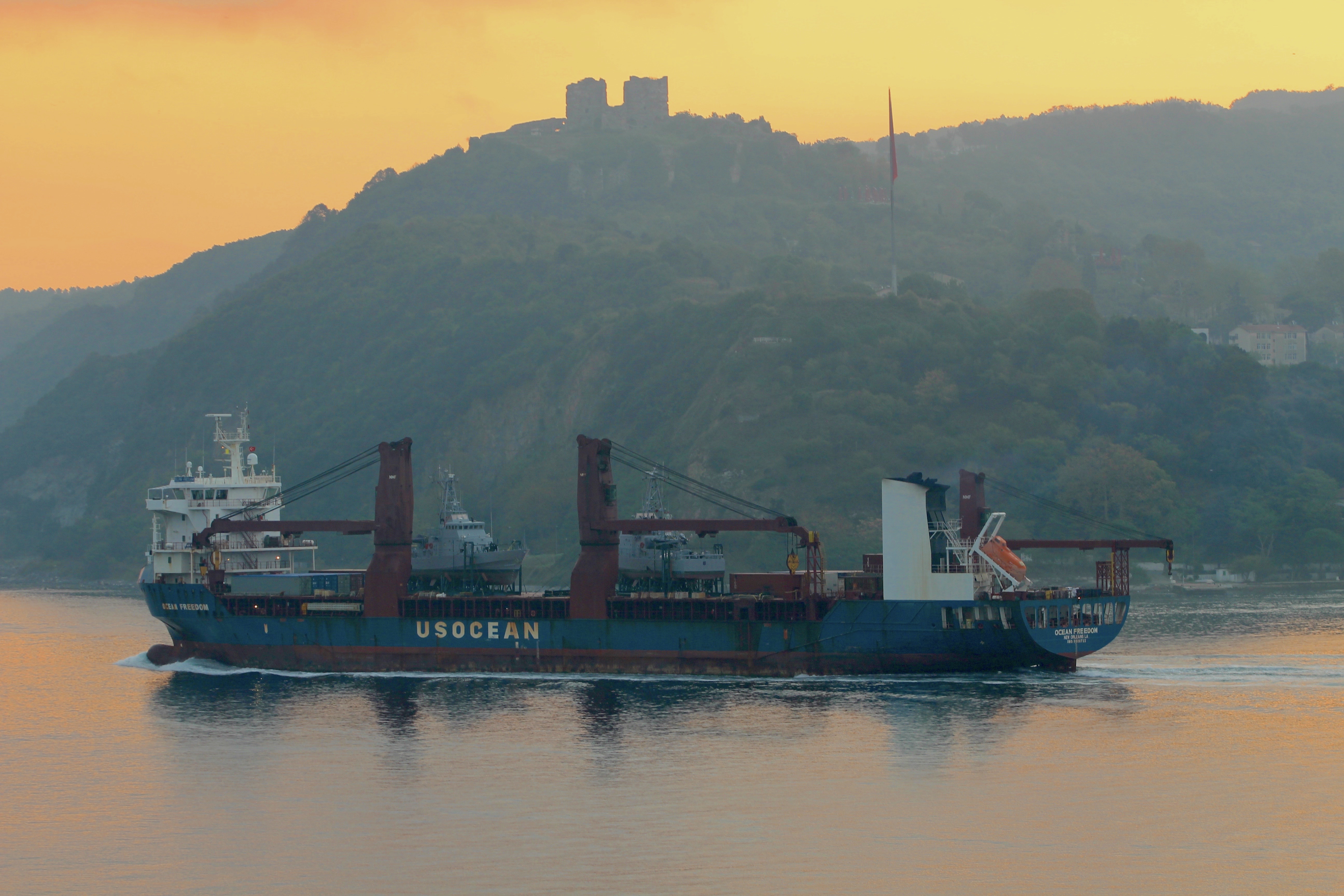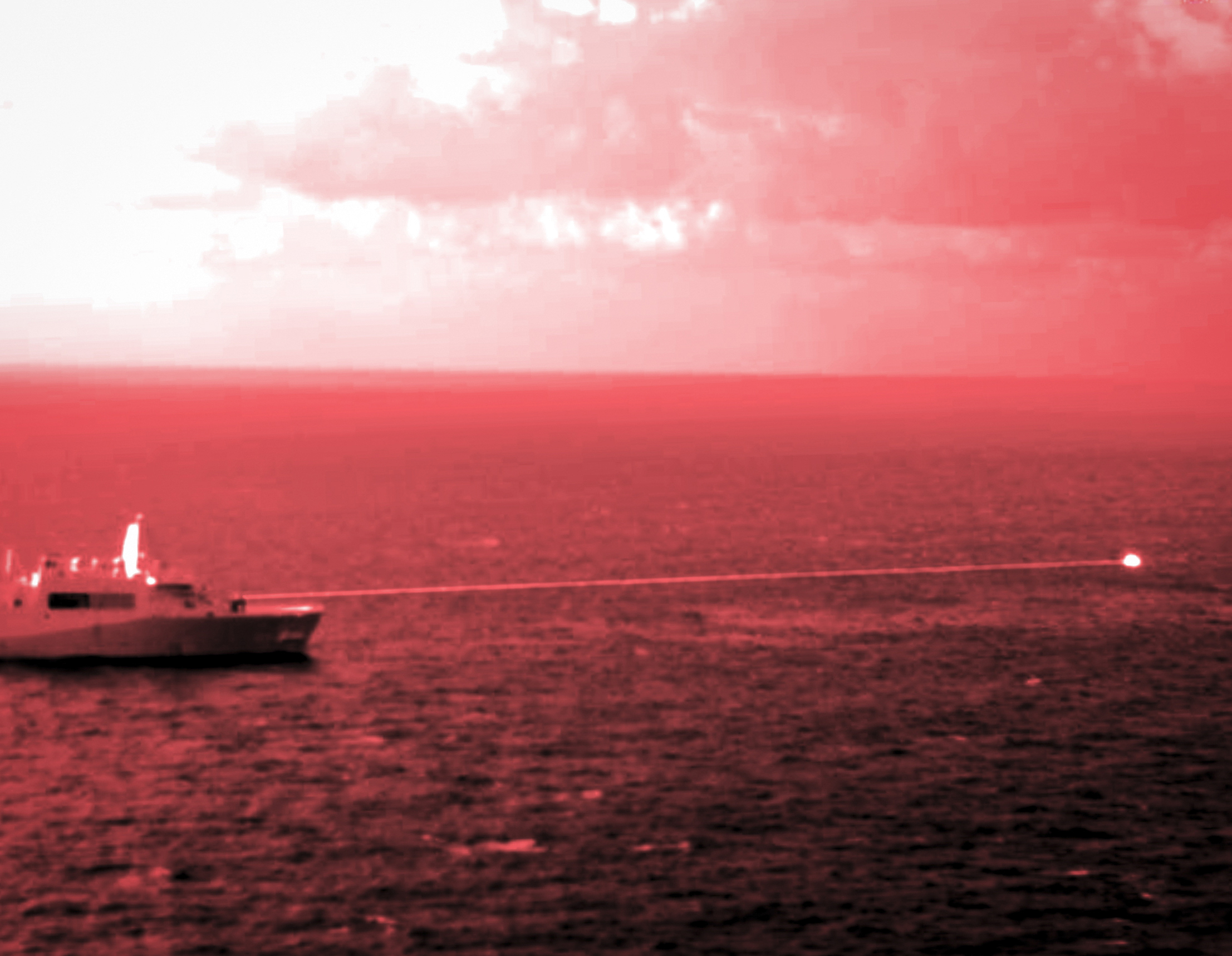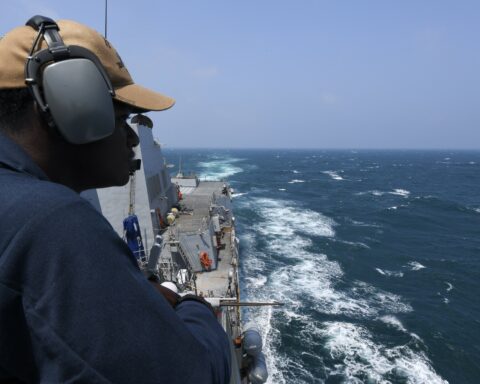
Russia has laid sea mines in the Black Sea that could interfere with Ukrainian grain exports, the White House announced Wednesday.
The new mines could be used to justify future attacks against civilian ships and blame Ukraine, the National Security Council said in a statement to USNI News.
“In addition to this coordinated effort in the Black Sea, we have already observed that Russia targeted Ukraine’s grain export ports in Odesa with missiles and drones on July 18 and 19, resulting in the destruction of agricultural infrastructure and 60,000 tons of grain,” reads the statement.
Two days after Russia pulled out of an agreement for Ukraine to ship grain through the Black Sea, the Kremlin declared all cargo ships traveling to Ukrainian ports as potentially carrying military cargo in support of Kyiv.
“ In connection with the cessation of the functioning of the Black Sea Grain Initiative and the сlosing of the maritime humanitarian corridor, from 00.00 Moscow time on 20 July 2023, all vessels sailing in the waters of the Black Sea to Ukrainian ports will be regarded as potential carriers of military cargo,” reads a message the MoD issued on the social messaging platform Telegram.
“Accordingly, the countries of such vessels will be considered to be involved in the Ukrainian conflict on the side of the Kyiv regime.”
The National Security Council said in the statement that it believes Russia may target the civilian ships in future attacks in addition to recent bombing in Odessa that hit grain supplies.
Under international law, the declaration allows Russian forces to board and search ships suspected of transporting arms, James Kraska, a maritime law expert and one of the author of the Newport Manual of the Law of Naval Warfare, told USNI News on Wednesday.
“Russia has a right to do that under the law of visit and search,” he said.
“They’re entitled to visit ships and board them to see if there are any weapons on board.”
However, if the ships are Ukrainian-flagged, they can be captured as a war prize.
“It doesn’t make them targets,” Kraska said.
As part of the grain deal brokered by Turkey and United Nations, which expired when Russia pulled out Monday, Moscow had the right to inspect ships heading to Ukraine, said Sal Mercogliano, an associate professor at Campbell University.
The concern is if Russia decides to attack ships going to or from Ukraine, Mercogliano said.
“What you’re seeing is an escalation on the Black Sea, and the fear is that if Russia hits ships sailing to Ukraine, what is to prevent Ukraine from hitting ships sailing from Russia?” he said. “And then you have a full-fledged commerce war between Ukraine and Russia targeting largely neutral third world nation ships, sailing carrying food, fuel and fertilizer.”
There is a chance that there could be armed escorts to protect merchant ships, but the question is who would provide them, Mercogliano said. Turkey closed the Bosphorus Strait to any warships from non-Black Sea from entering the Black Sea.
Turkey could provide an armed escort, as could Romania and Bulgaria as Black Sea nations. NATO could also provide shore support or put teams aboard the ships, he said.
“The question is how much would a nation want to get involved? You know, we just deployed a destroyer, and F-35s and F-16s to protect merchant ships coming out of the Straits of Hormuz by Iranian attacks,” Mercogliano said. “Yet we seem like we’re not going to do the same for ships in the Black Sea.”
Additionally, the Russian MOD declared certain sections of the Black Sea hazardous to navigation.
“Corresponding information warnings on the withdrawal of safety guarantees to mariners have been issued in accordance with the established procedure,” reads the message from the MoD.
The new declaration follows the expiration of a deal that allowed grain to leave Ukraine. Moscow said Russia did not receive concessions as part of the deal. That included reconnecting a Russian bank to the international SWIFT system, completion of an ammonia pipeline and allowing Russian ships to dock in international ports.
Up to 10 percent of the world’s grain is produced in Ukraine. The country serves as the bread basket for much of the Middle East and North Africa.





